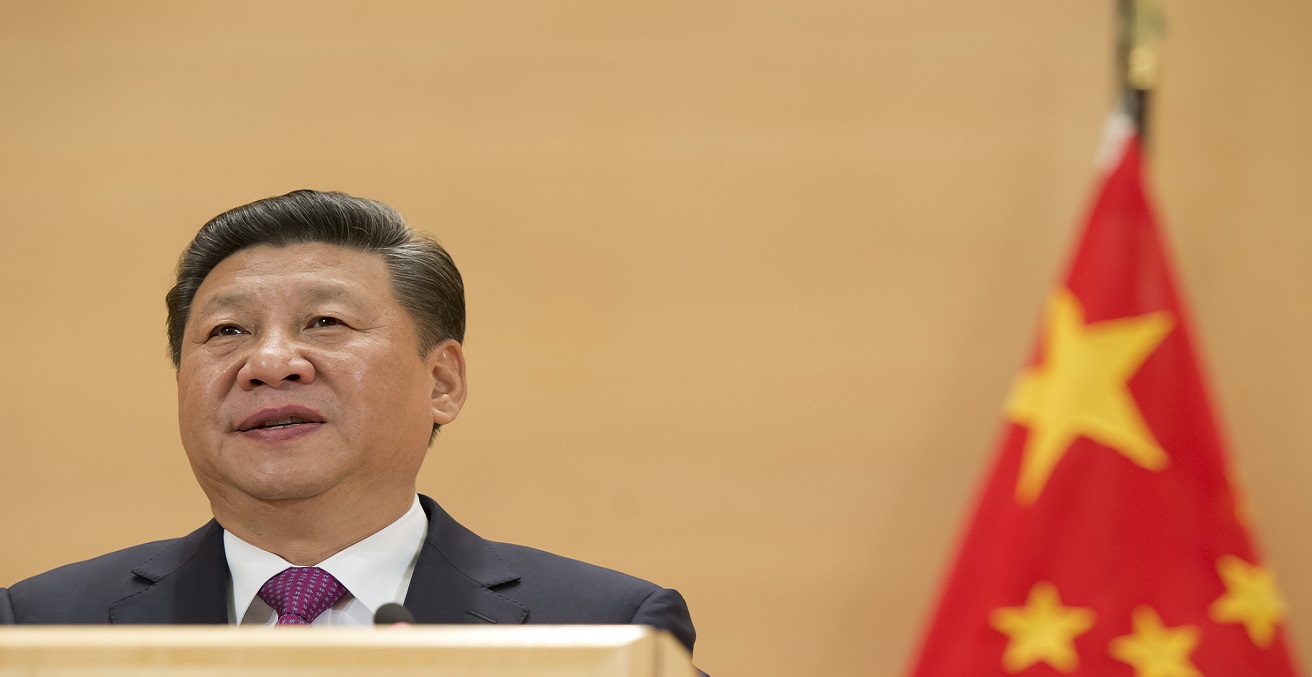Lost in Translation – A More "Loveable" China?

Communicating ideas across languages and cultures poses challenges for translators. The choices translators make have the power to shape how information is perceived, which can have a significant impact on international relations discourse.
Chinese President Xi Jinping’s speech this year at the Politburo’s 30th collective study session on strengthening Chinese capacity-building in international communications generated much interest in the English-language media. Western media outlets were quick to flag that China intended to soften its image. The BBC, for example, ran the headline “Xi Jinping calls for more ‘loveable’ image for Chinese in bid to make friends.” The story about China’s intention to change its diplomatic style was undoubtedly news-worthy in itself, but the word “loveable” is of particular interest in this context.
The word “loveable” has a cute and cuddly connotation in English, but did Xi genuinely want the rest of the world to see China in a cuddly and huggable light? If we look closely at the meaning of the original Chinese word, ke’ai, spoken by Xi, we may find an answer. It is true that ke expresses a meaning similar to the suffix “-able” in English, but the meaning of ai is not straightforward, although it is often considered an equivalent of “to love.” If we use a large language database, such as the one constructed by the Beijing Language and Culture University we can observe that, in more formal contexts, words that are typically paired with ke’ai include “motherland” (zuguo), “the people” (renmin), and “land” (tudi), while ke’ai and kejing (respectable, admirable), another word used in Xi’s articulation of the image of China, often go hand in hand. In fact, there isn’t really one English word that translates ke’ai. Its meaning overlaps with a range of English words, such as “likeable,” “admirable,” “appealing,” “approachable,” and “inspiring.” In a formal context, “beloved” is probably closer in meaning to ke’ai. There certainly isn’t a “cuddly” interpretation in Chinese when the word ke’ai is employed by Xi.
This linguistic contrast is further demonstrated through the way in which Chinese journalists understand and use the term ke’ai. On 8 November, National Journalists’ Day in China, the Chinese Association of Journalists asked ten journalists to recount the stories they wrote in response to Xi’s call. Under the heading Ke’ai de Zhongguo – “a likeable China” – two stories were included. One is about a herd of elephants wandering through China, as a way to show the Chinese people’s care for nature and the environment. The story was also picked up by the English media. For example, ABC News published “China’s wandering elephants are on their way home after a year-long journey.” The other story references a likeable, humorous, and devoted scientist who works on hybrid rice. By using ke’ai, Xi wants to showcase the “human side” of China which people can relate to and admire.
The “loveable” story exemplifies the type of difficulties involved in translation. Most words don’t have direct counterparts in another language, and a literal translation is unlikely to be accurate. Xi’s speech was mainly targeted at a Chinese audience, particularly the Chinese media. There are many words in the speech that are difficult to render into English without changing the original stance that is either implied or expressed by Xi.
The phrase “lost in translation” is not merely a cliché, but a reality translators and readers have to live with. In a political context, the word choices made by translators commit readers to a particular view which may not be intended in the original. The China Xi wants the rest of the world to see is captured through in the powerful yet easy-to-remember parallelism of ke’xin, ke’ai, and kejin (“trustworthy, likeable, respectable”). These three terms evoke intrinsic qualities that aim to inspire human feelings, and deeply relate to important human values. By using the literal translation of “loveable,” the BBC misrepresented and oversimplified Xi’s message, contributing to an ever-widening gulf between China and the West. When readers are unable to access information in its original language, translation becomes the sole means by which they form opinions of others. Translation can break or bridge relations between people. It consequently has an important stake in international relations.
On the other hand, one expression in Xi’s speech, now known in English as the “community of common destiny (for humankind)” (renlei mingyun gongtongti), is surprisingly easy to translate. Considered one of the defining concepts of Xi’s vision for global governance, the idea actually builds on the English word “community.” It requires no translation and is readily grasped by an English-speaking audience, but resonates little with the Chinese domestic audience.
However, the word gongtongti is not an indigenous Chinese concept. It is seldom used in everyday Chinese, unlike community in English. The Chinese language database mentioned earlier shows that gongtongti, which literally means “common entity,” was first used in the 1950s, mostly appearing as a translation of the English word “community” in academic writing. Between 1972 and 1992, the term appeared mostly in Chinese translations of the European Economic Community, before the latter became the European Union. But it was not until 2012, when Xi became the president of China, that the Chinese term for, “the community of common destiny for humankind” was first recorded in the database, with six occurrences that year. By 2017, the term had been voted one of the buzzwords of the year.
But the concept of “community” is still largely absent in contemporary Chinese, owing to the way Chinese society is structured. Community in English suggests that individuals come together as a group with shared interests and goals and lend mutual support to each other. It is a societal model based on a society of strangers. By contrast, Chinese society is grounded in relationships between individuals with pre-defined roles and mutual obligations.
Languages are closely intertwined with their cultures. Moving ideas across language barriers is difficult, and is made even harder when large cultural distances are involved. When it comes to external publicity and promotion – waixuan, often translated into English as “propaganda,” – the Chinese government chooses its words carefully and deliberately. While most Chinese leaders are not proficient in English, they understand the critical role language plays in diplomacy and are supported by a system that promotes this. There are think tanks that carefully consider how words are translated into foreign languages, and the Chinese Ministry of Foreign Affairs has a Department of Translation and Interpretation. Chinese diplomats are first and foremost language specialists who can navigate the twists and turns of translation. Sadly, this does not appear to be the case in the English-speaking world. The day of sinologist-cum-diplomat is fading. At a time when its role is ascending internationally, understanding China and its people is needed more than ever.
Dr Zhengdao Ye is a Senior Lecturer at the School of Literature, Languages and Linguistics, The Australian National University.
This article is published under a Creative Commons License and may be republished with attribution.





